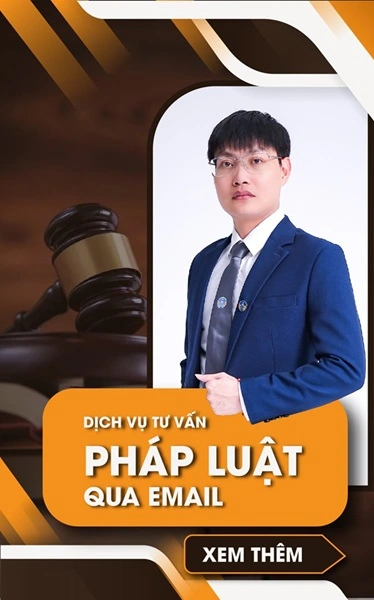| Số hiệu | 158/2003/QĐ-TTg |
| Loại văn bản | Quyết định |
| Cơ quan | Thủ tướng Chính phủ |
| Ngày ban hành | 31/07/2003 |
| Người ký | Phan Văn Khải |
| Ngày hiệu lực | 29/08/2003 |
| Tình trạng | Còn hiệu lực |
THỦ TƯỚNG CHÍNH PHỦ | CỘNG HOÀ XÃ HỘI CHỦ NGHĨA VIỆT NAM |
Số: 158/2003/QĐ-TTg | Hà Nội, ngày 31 tháng 7 năm 2003 |
THỦ TƯỚNG CHÍNH PHỦ
Căn cứ Luật Tổ chức Chính phủ ngày 25 tháng 12 năm 2001;
Nhằm bảo vệ an toàn tính mạng, sức khoẻ của con người, tài sản, môi trường và hoạt động bình thường của cơ quan, tổ chức và công dân;
Theo đề nghị của Bộ trưởng Bộ Công an và Bộ trưởng Bộ Bưu chính, Viễn thông,
QUYẾT ĐỊNH:
Điều 2. Quyết định này có hiệu lực thi hành sau 15 ngày, kể từ ngày đăng Công báo.
| Phan Văn Khải (Đã ký) |
TẠM THỜI XỬ LÝ CÁC VỤ THƯ, BƯU PHẨM, BƯU KIỆN CÓ CHỨA CHẤT LẠ, VẬT LẠ NGHI LIÊN QUAN ĐẾN VŨ KHÍ SINH HỌC, HOÁ HỌC
(Ban hành kèm theo Quyết định số 158/2003/QĐ-TTg ngày 31 tháng 7 năm 2003 của Thủ tướng Chính phủ)
Đối tượng cần được phát hiện xử lý trong Quy chế này là những thư, bưu phẩm, bưu kiện có chứa chất lạ, vật lạ nghi liên quan đến vũ khí sinh học, hoá học (trong Quy chế này viết tắt là vật gửi) :
- Được gửi đi, gửi đến các cơ quan, tổ chức, cá nhân có trụ sở trên lãnh thổ nước Cộng hoà xã hội chủ nghĩa Việt Nam hoặc đang vận chuyển trên máy bay, tàu thuỷ và các phương tiện giao thông vận tải khác của Việt Nam hoặc có treo quốc kỳ Việt Nam hoặc các phương tiện của nước ngoài đang neo đậu, quá cảnh qua Việt Nam; các cơ quan đại diện ngoại giao nước ngoài, tổ chức, cá nhân có thân phận ngoại giao của cơ quan đại diện nước ngoài có trụ sở trên lãnh thổ nước Cộng hoà Xã hội chủ nghĩa Việt Nam.
- Được gửi từ các cơ quan, tổ chức, cá nhân có trụ sở trên lãnh thổ nước Cộng hoà Xã hội chủ nghĩa Việt Nam ra nước ngoài.
Các cơ quan Y tế, Khoa học và Công nghệ, Quân đội có trách nhiệm phối hợp với cơ quan Công an trong việc giám định nhằm xác định và có kết luận nổ về các chất lạ, vật lạ nghi liên quan đến vũ khí sinh học, hoá học.
Việc đưa tin trên các phương tiện thông tin đại chúng phải thực hiện theo đúng quy định của Luật Báo chí và Pháp lệnh Bảo vệ bí mật Nhà nước.
TRÁCH NHIỆM CỦA CƠ QUAN, TỔ CHỨC, CÁ NHÂN TRONG VIỆC PHÁT HIỆN, THÔNG BÁO VỀ CÁC VỤ VIỆC
Nếu vụ việc xảy ra và được phát hiện tại các đơn vị quân đội thì thực hiện theo chỉ thị, quy định, mệnh lệnh của Bộ trưởng Bộ Quốc phòng. Cơ quan chức năng của Quân đội có trách nhiệm giải quyết hoặc đề nghị cơ quan Công an phối hợp giải quyết, nhưng phải thông báo kịp thời tình hình, thống kê vụ việc xẩy ra cho Công an địa phương nơi đóng quân biết để theo dõi và xử lý các vụ việc liên quan có hệ thống.
TRÁCH NHIỆM CỦA CÁC CƠ QUAN TRONG VIỆC TIẾP NHẬN TIN BÁO VÀ XỬ LÝ ĐỐI VỚI CÁC VỤ VIỆC
MỤC A. TIẾP NHẬN VÀ XỬ LÝ TIN BÁO
Trường hợp các cơ quan, tổ chức, cá nhân mang vật gửi trực tiếp trình báo, thì cơ quan, đơn vị Công an được trình báo phải khẩn trương kiểm tra, tiếp nhận hiện vật và yêu cầu tổ chức, cá nhân có báo cáo tường trình bằng văn bản; đồng thời phải chuyển ngay vật gửi vào khu vực, phòng cách ly để đảm bảo an toàn về độc hại, phóng xạ, cháy, nổ hoặc vi trùng. Nếu đơn vị công an không có trách nhiệm trực tiếp giải quyết, phải báo cáo ngay với cấp trên có chức năng và thẩm quyền để có biện pháp xử lý tiếp theo.
Cơ quan chức năng khi xử lý vụ việc, thu lượm, bảo quản mẫu vật phải lập biên bản cụ thể, có sự chứng kiến của đại diện cơ quan Ngoại giao, tổ chức quốc tế có vụ, việc xảy ra; phải làm đúng thủ tục pháp luật quy định.
Đối với các vật gửi phát hiện khi đang làm thủ tục thông quan, cơ quan Hải quan phải có trách nhiệm đề nghị cơ quan chức năng thu giữ, giám định và phải thông báo cho chủ vật gửi đó biết. Khi đã được các cơ quan chuyên môn xác định chính xác không liên quan đến vũ khí sinh học, hoá học thì cơ quan Hải quan làm thủ tục hải quan để thông quan hoặc chuyển cho chủ sở hữu.
Trong mọi trường hợp khi mở vật gửi phải báo cho chủ sở hữu chứng kiến (trừ trường hợp vật vô chủ).
Nếu nghi vấn có vi trùng hoặc kết quả kiểm tra dương tính, cơ quan y tế triển khai ngay biện pháp xử lý tẩy trùng, đảm bảo an toàn đối với mẫu vật cũng như đối với hiện trường; tổ chức kiểm tra sức khoẻ những người có liên quan.
Khi mẫu vật và hiện trường đã được các cơ quan chuyên môn, xử lý tẩy trùng hoặc kết quả kiểm tra kết luận là không liên quan đến vũ khí sinh học, hoá học lực lượng Công an khẩn trương hoàn thành công tác khám nghiệm, giám định giải phóng hiện trường, trả lại vật gửi (nếu không liên quan đến vụ việc phải tiếp tục điều tra, xác minh làm rõ) cho chủ sở hữu.
ưViệc kiểm tra vật gửi, giám định mẫu vật phải được lập biên bản và đưa vào hồ sơ phục vụ công tác điều tra, giải quyết vụ việc.
Hàng năm Bộ Tài chính có trách nhiệm tập hợp đề nghị của các Bộ, ngành báo cáo Chính phủ duyệt cấp kinh phí.
Bộ Công an có trách nhiệm hướng dẫn cụ thể và kiểm tra, theo dõi, đôn đốc thực hiện Quy chế.
THE PRIME MINISTER OF GOVERNMENT | SOCIALIST REPUBLIC OF VIET NAM |
No. 158/2003/QD-TTg | Hanoi, July 31, 2003 |
DECISION
PROMULGATING THE PROVISIONAL REGULATION ON THE HANDLING OF CASES INVOLVING MAILS AS WELL AS POSTAL ARTICLES AND PARCELS CONTAINING STRANGE SUBSTANCES AND/OR OBJECTS DOUBTED TO BE RELATED TO BIOLOGICAL OR CHEMICAL WEAPONS
THE PRIME MINISTER
Pursuant to the Law on Organization of the Government of December 25, 2001;
In order to ensure the safety for human life and health, properties, environment and regular activities of agencies, organizations and citizens,
At the proposals of the Minister of Public Security and the Minister of Posts and Telematics,
DECIDES:
Article 1. To promulgate together with this Decision the provisional Regulation on the handling of cases involving mails as well as postal articles and parcels containing strange substances and/or objects doubted to be related to biological or chemical weapons.
Article 2. This Decision takes effect 15 days after its publication in the Official Gazette.
Article 3. The ministers, the heads of the ministerial-level agencies, the heads of the agencies attached to the Govemment and the presidents of the provincial/ municipal People's Committees shall have to implement this Decision.
| PRIME MINISTER Phan Van Khai |
PROVISIONAL REGULATION
ON THE HANDLING OF CASES INVOLVING MAILS AS WELL AS POSTAL ARTICLES AND PARCELS CONTAINING STRANGE SUBSTANCES AND/ OR OBJECTS DOUBTED TO BE RELATED TO BIOLOGICAL OR CHEMICAL WEAPONS
(Issued together with the Prime Minister's Decision No. 158/2003/QD-TTg of July 31, 2003)
Chapter I.
GENERAL PROVISIONS
Article 1. Strange substances and/or objects doubted to be related to biological or chemical weapons (hereinafter called strange substance and/or objects for short) are substances and objects which are doubted to possibly cause fires, explosion, hazards or radioactivity; doubted to contain biological agents (substances containing microbes, viruses or bacteria...) which affect human life and health or living environment.
Subjects which must be detected and handled under this Regulation are mails as well as postal articles and parcels containing strange substances and/or objects doubted to be related to biological or chemical weapons (hereinafter called sent objects for short):
- Being sent from, or addressed to, agencies, organizations or individuals based in the territory of the Socialist Republic of Vietnam or being transported on aircraft, ships or other transport means of Vietnam or those flying Vietnam's national flag or on foreign transport means anchoring in, or transiting, Vietnam; foreign diplomatic missions as well as organizations and individuals having diplomatic status of foreign representations based in the territory of the Socialist Republic of Vietnam.
- Being sent abroad from agencies, organizations or individuals based in the territory of the Socialist Republic of Vietnam.
Article 2. The process of seizing, expertising and handling sent objects must be carried out promptly, ensuring safety for citizens' life and health, the State's and citizens' properties as well as environmental protection in strict accordance with the provisions of this Regulation. At the same time, the contents of mails as well as postal articles and parcels must be kept secret and the citizens' legitimate rights must be ensured.
Article 3. The police offices shall have to receive information on, and handle, sent objects containing strange substances and/or objects doubted to be related to biological or chemical weapons.
The health, science and technology, and defense agencies shall have to coordinate with the police offices in carrying out the expertise in order to determine and make conclusions on strange substances and/or objects doubted to be related to biological or chemical weapons.
Article 4. The expertise conclusions as well as the results of the cases shall be publicized only after it is so permitted by the Minister of Public Security.
The publication of news on the mass media must strictly comply with the provisions of the Press Law and the Ordinance on Protection of State Secrets.
Chapter II
RESPONSIBILITIES OF AGENCIES, ORGANIZATIONS AND INDIVIDUALS IN DETECTING AND REPORTING ON CASES
Article 5. When transporting or receiving sent objects, if agencies, organizations or individuals doubt that such sent objects contain strange substances and/ or objects related to biological or chemical weapons, they must promptly notify the nearest police offices' or Police 113 thereof. At the same time, they must file documents to the police offices reporting on initial information on the cases and proposing their request for the expertise and handling thereof.
If the cases occur and are detected in army units, the Defense Minister's directives, regulations and orders shall be complied with. Functional agencies of the army shall have to handle or request the police offices to coordinate in handling the cases, but must promptly notify the situation and statistical figures on occurring cases to the police offices of the localities where they are stationed for the latter to monitor and handle related cases in a systematic manner.
Article 6. All acts of abusing postal services to send objects containing strange substances and/or objects doubted to be related to biological or chemical weapons or providing untruthful information thereon in order to confuse public opinion are strictly prohibited.
Chapter III
RESPONSIBILITIES OF AGENCIES IN RECEIVING INFORMATION AND HANDLING CASES
Section A. RECEIVING AND PROCESSING INFORMATION
Article 7. When receiving information, the police offices shall have to promptly examine and verify them, guide the reporting agencies, organizations or individuals to apply self-protection measures, isolate and protect the samples and scenes; carry out measures to ensure safety for near-by people; and guide and manage information, prevent bad consequences and impacts which may occur.
In cases where agencies, organizations or individuals directly bring the sent objects for reporting, the police offices or units shall have to urgently inspect and receive the objects and request the organizations or individuals to make written reports thereon; at the same time, transfer sent objects to isolated wards or rooms in order to ensure safety against hazards, radioactivity, fire, explosion or microbes. If the police units are not responsible for directly handling the cases, they must immediately report them to functional and competent superior levels for the latter to work out subsequent handling measures.
Article 8. In cases where the sent objects are detected in, or received from, agencies, organizations or individuals having diplomatic status or detected in Vietnam-based diplomatic missions or international organizations, the police offices shall have to assume the prime responsibility and coordinate with the Ministry for Foreign Affairs in handling them.
The functional agencies, when handling the cases, gathering and preserving the samples, must make specific records thereon to the witness of representatives of the diplomatic agencies or international organizations where the cases occurred; and strictly comply with procedures prescribed by law.
Section B. PROTECTION AND EXAMINATION OF SCENES; INSPECTION AND HANDLING OF DANGERS OF HAZARDS, RADIOACTIVITY, FIRE OR EXPLOSION; SEIZURE AND PRESERVATION OF SAMPLES AND TRACES
Article 9. When receiving information, the police forces must quickly go to the scenes, grasp the situation and immediately implement measures to protect the scenes; render first aid to victims (if any); inspect and handle poisonous and radio active, explosive and flammable substances in the sent objects; seize the samples after handling radioactivity or explosion dangers; collect information related to the cases, record statements of witnesses and examine the scenes in order to detect and gather criminal traces in service of the investigation and verification of the cases. In case of necessity, they may propose the measure of isolating the scenes from the surrounding environment.
Article 10. In case of necessity, the police offices receiving sent objects may request functional forces of the Ministry of Defense or the Ministry of Science and Technology to support them in the expertise or participate in the handling thereof. The requested agencies must satisfy the police offices' requests.
Article 11. For scenes where sent objects containing strange substances and/or objects are seized but such scenes must be exploited immediately such as on aircraft or ships, or in postal establishments, the health service shall have to coordinate with the aircraft- or shipmanaging agencies or post offices in carrying out the detoxication, disinfection and treatment of environment so as to clear the scenes soon.
For sent objects which are detected when the customs clearance procedures therefor are being carried out, the customs offices shall have to request the functional agencies to seize and expertise them, and notify the owners of sent objects thereof. When such sent objects are accurately determined by professional bodies as not related to biological or chemical weapons, the customs offices shall carry out the customs clearance procedures or transfer them to their owners.
In all cases, the opening of sent objects must be notified to, and witnessed by their owners (except for abandoned objects).
Article 12. During the time of inspection and verification, if the agencies, organizations or individuals receiving sent objects wish to know about the contents thereof, they shall send written requests therefor to competent police offices. When receiving written requests, the police offices shall have to notify the accurate contents of sent objects.
Article 13. Agencies, units and administrations in the localities where sent objects containing strange substances and/or objects doubted to be related to biological or chemical weapons are detected shall have to arrange forces for the coordinated protection of the scenes and create conditions for professional forces to perform their tasks.
Section C. INSPECTION, EXPERTISE AND HANDLING OF BIOLOGICAL AND CHEMICAL AGENTS; EXAMINATION AND CLEARANCE OF SCENES; DETERMINATION OF TOXINS OR CHEMICAL COMPONENTS; INVESTIGATION AND HANDLING OF THE CASES
Article 14. After receiving, examining and initially handling sent objects containing strange substances and/ or objects, the police offices shall have to quickly pack the samples, carry out the procedures and transfer the samples to provincial/municipal preventive medicine centers, Pasteur Institutes or the Central Institute for Sanitation and Epidemiology for examination, analysis and determination of biological or chemical agents.
Article 15. The preventive medicine centers, Pasteur Institutes and the Central Institute for Sanitation and Epidemiology, after receiving requests for examination, analysis and handling of biological or chemical agents, shall have to quickly receive samples, immediately carry out the examination and notify the requesting agencies of the results as soon as possible.
If doubting of the existence of microbes or the examination result is positive, the health agencies shall have to immediately carry out the disinfection, so as ensure the safety for the samples and scenes; and organize the medical examination for concerned people.
Article 16. When requested by competent agencies, transport enterprises and postal service enterprises shall have to give priority to the quick and safe transportation of the samples.
After the samples and scenes are disinfected by professional agencies or the examination results show that they are not related to biological or chemical weapons, the police offices shall quickly complete the examination and expertise, clear the scenes and return sent objects (if not related to cases to be further investigated or verified) to their owners.
The records on examination of sent objects and expertise of samples must be made and included in the dossiers thereof in service of the investigation and handling of the cases.
Article 17. After the results of inspection and expertise of biological or chemical agents have been obtained and the disinfection by professional agencies has been completed, the police offices shall have to carry out the expertise in order to determine the toxins or chemical components; carry out or guide the detoxication if there are dangerous toxins.
Article 18. The police offices shall have to guide the participating forces in handling and examining the samples so as to avoid adverse impacts on the detection and gathering of traces on sent objects. In parallel with the expertise, the police offices shall have to research and gather traces on sent objects or samples and have to immediately carry out professional as well as penal examination operations so as to investigate and make conclusions on the cases in accordance with law provisions.
Chapter IV
IMPLEMENTATION ORGANIZATION
Article 19. The ministries, branches and localities shall take initiative in estimating funding for the handling of sent objects containing strange substances and/or objects from the funding sources of the ministries, branches. For complicated cases which require funding in excess of the allocated amount for handling, the reports thereon must be made and submitted to the Prime Minister.
Annually, the Ministry of Finance shall have to sum up and report the proposals of the ministries and branches to the Government for approval and allocation of funding.
Article 20. The ministries, branches and provincial/ municipal People's Committees shall base themselves on their assigned functions, powers and tasks to work out specific guidance for the implementation of this Regulation.
Article 21. The police offices of various levels shall have to announce the addresses and telephone numbers of their standing bodies in charge of handling affairs defined in this Regulation so as to create convenience for people, agencies and units in the localities to contact them.
The Ministry of Public Security shall have to specifically guide, inspect, monitor and urge the implementation of this Regulation.
Article 22. In the course of implementation, if meeting with any difficulties or troubles, the ministries, branches and provincial/municipal shall have to promptly report them to the Prime Minister (through the Ministry of Public Security). The Minister of Public Security shall have to sum up such reports to the Prime Minister for consideration and decision.
| PRIME MINISTER Phan Van Khai |
---------------
This document is handled by Luật Dương Gia. Document reference purposes only. Any comments, please send to email: dichvu@luatduonggia.vn
Mục lục bài viết
- 1 Được hướng dẫn
- 2 Bị hủy bỏ
- 3 Được bổ sung
- 4 Đình chỉ
- 5 Bị đình chỉ
- 6 Bị đinh chỉ 1 phần
- 7 Bị quy định hết hiệu lực
- 8 Bị bãi bỏ
- 9 Được sửa đổi
- 10 Được đính chính
- 11 Bị thay thế
- 12 Được điều chỉnh
- 13 Được dẫn chiếu
- 14 Hướng dẫn
- 15 Hủy bỏ
- 16 Bổ sung
- 17 Đình chỉ 1 phần
- 18 Quy định hết hiệu lực
- 19 Bãi bỏ
- 20 Sửa đổi
- 21 Đính chính
- 22 Thay thế
- 23 Điều chỉnh
- 24 Dẫn chiếu
Văn bản liên quan
Được hướng dẫn
Bị hủy bỏ
Được bổ sung
Đình chỉ
Bị đình chỉ
Bị đinh chỉ 1 phần
Bị quy định hết hiệu lực
Bị bãi bỏ
Được sửa đổi
Được đính chính
Bị thay thế
Được điều chỉnh
Được dẫn chiếu
Văn bản hiện tại
| Số hiệu | 158/2003/QĐ-TTg |
| Loại văn bản | Quyết định |
| Cơ quan | Thủ tướng Chính phủ |
| Ngày ban hành | 31/07/2003 |
| Người ký | Phan Văn Khải |
| Ngày hiệu lực | 29/08/2003 |
| Tình trạng | Còn hiệu lực |
Văn bản có liên quan
Hướng dẫn
Hủy bỏ
Bổ sung
Đình chỉ 1 phần
Quy định hết hiệu lực
Bãi bỏ
Sửa đổi
Đính chính
Thay thế
Điều chỉnh
Dẫn chiếu
Văn bản gốc PDF
Đang xử lý
Văn bản Tiếng Việt
Đang xử lý
.




